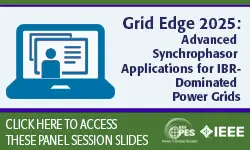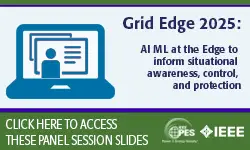Challenges and Opportunities from Integration of Electric Vehicle Charging
Thomas Morstyn, Ziyou Song, Maeve Lawniczak, Michael Starke, Georgia Pierrou
-
Members: FreePES
IEEE Members: $25.00
Non-members: $40.00Pages/Slides: 73
Panel
12 Sep 2024
Ambitious goals have been set world-wide for decarbonization of the transport sector. Electric vehicles currently offer the most viable alternative to internal combustion vehicles across a range of end-uses. In 2022 it is estimated that there were 18 million plug-in electric vehicles in use globally, representing a 10-fold increase since 2016. Charging of electric vehicles will add significant load to power systems, particularly to low voltage distribution networks. However, electric vehicle chargers could also provide new levels of controllability to power demand e.g., through load shifting, ancillary services, or market participation. This session will analyze various aspects of the integration of electrified transport into power systems — considering both economic and technical challenges. The panelists will cover a range of transport scales, from residential vehicle charging to commercial fleet management.
Chairs:
Guodong Liu
Primary Committee:
Smart Buildings, Loads & Customer Systems



